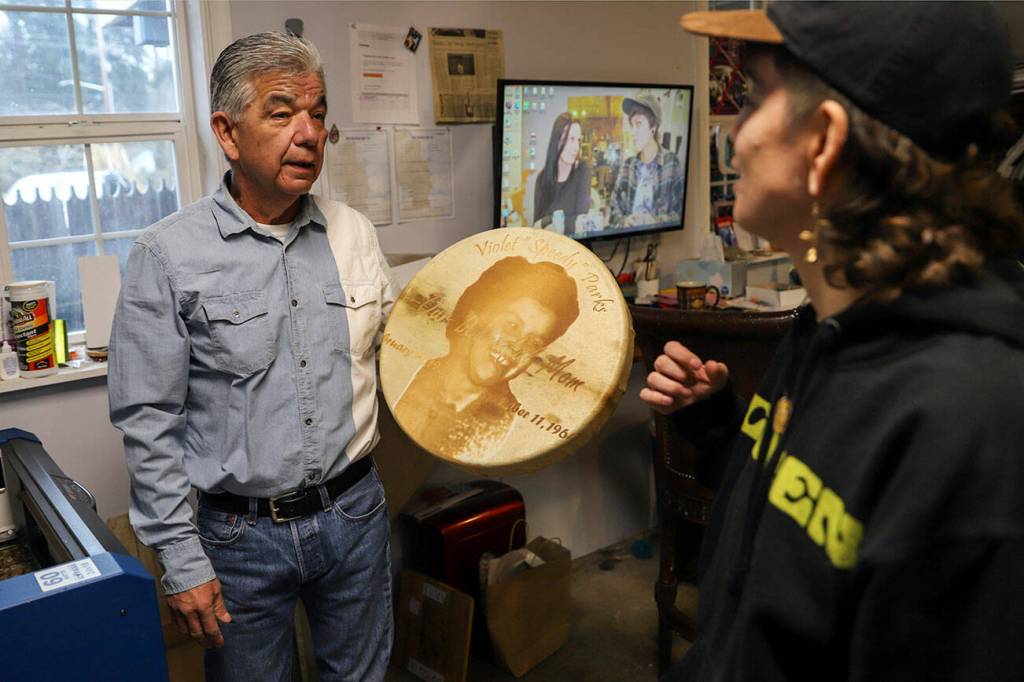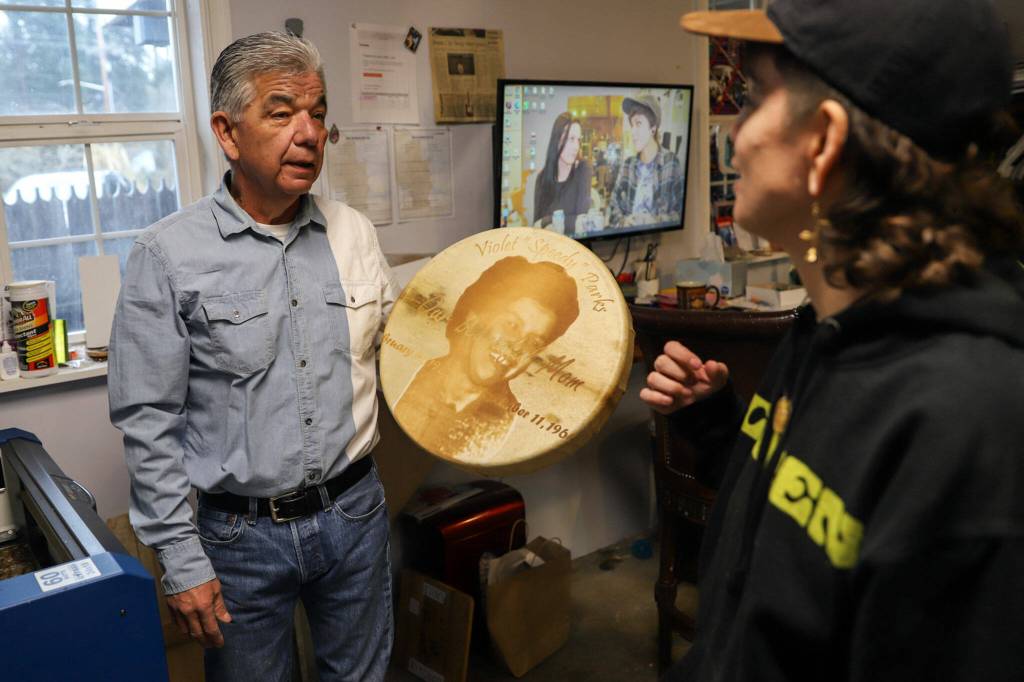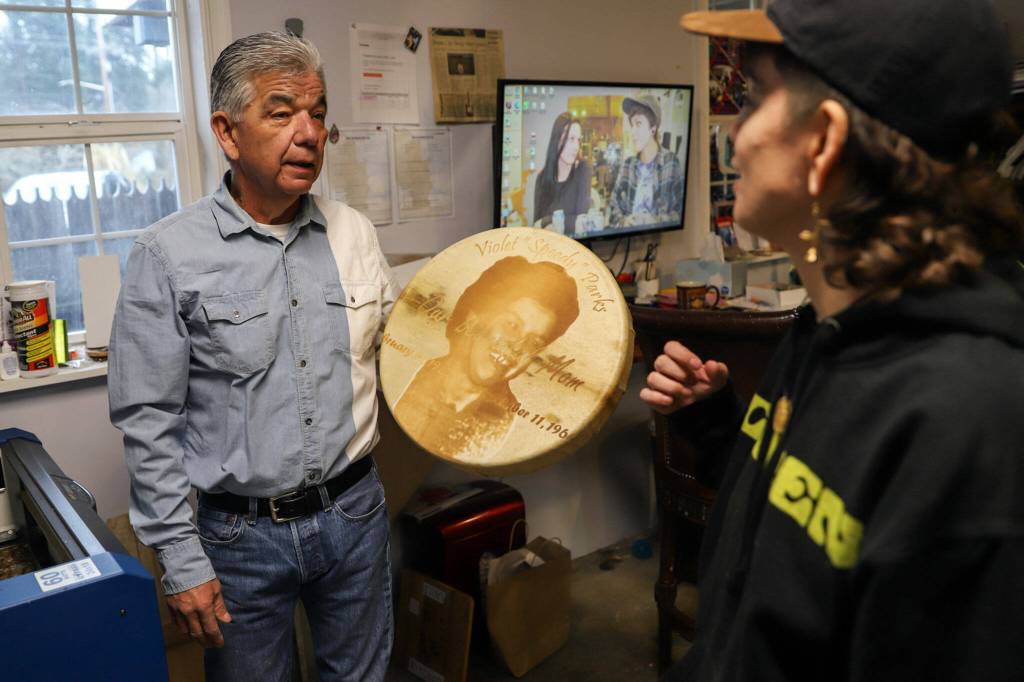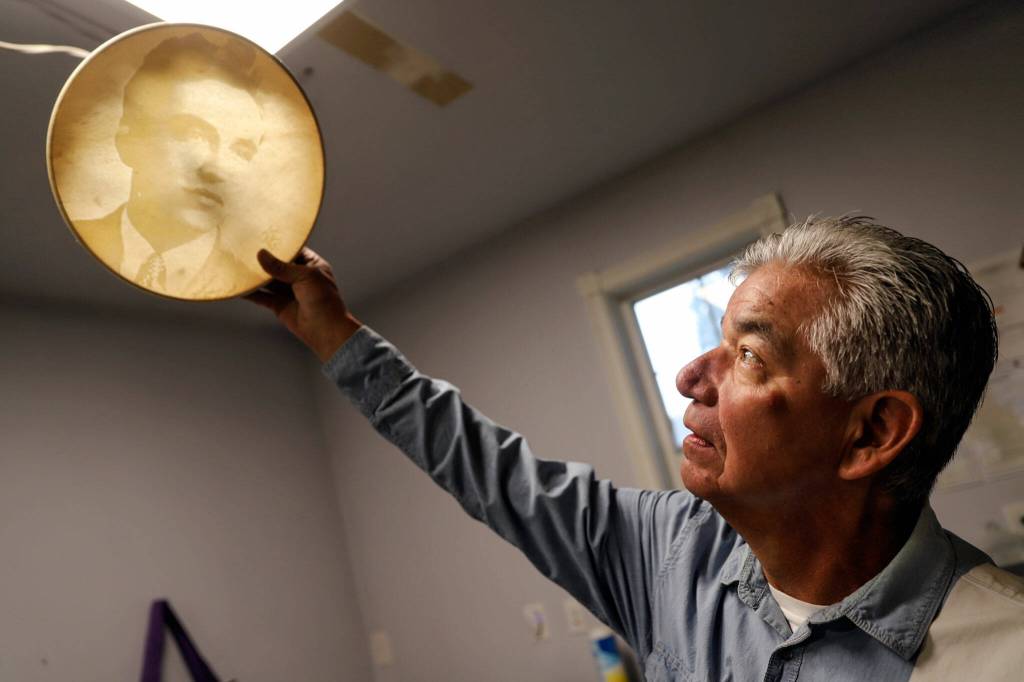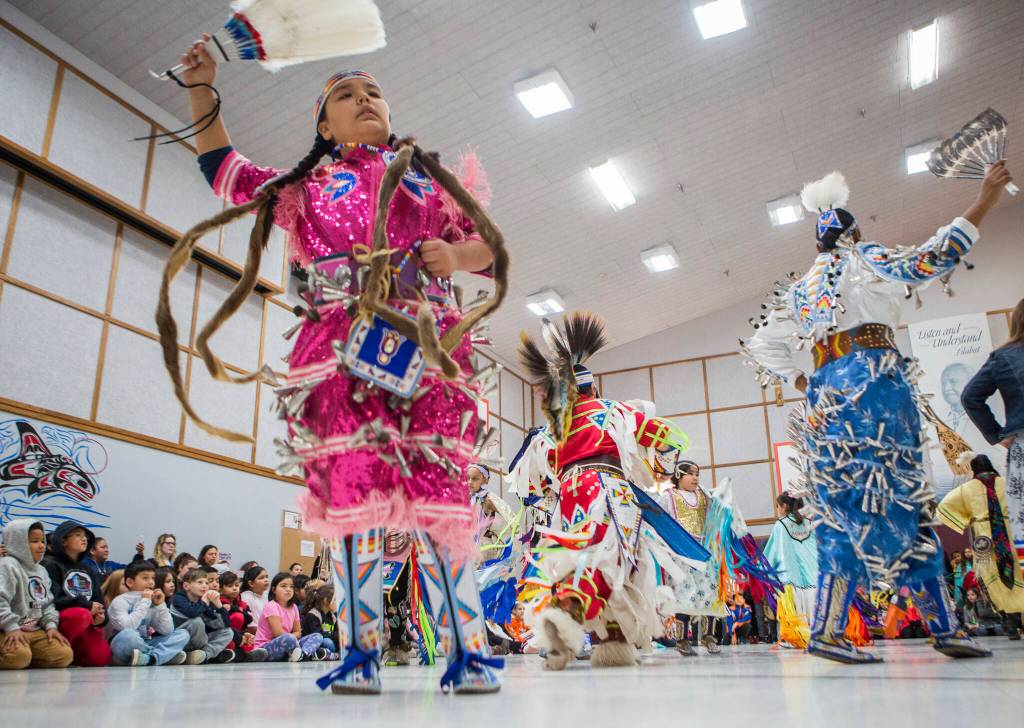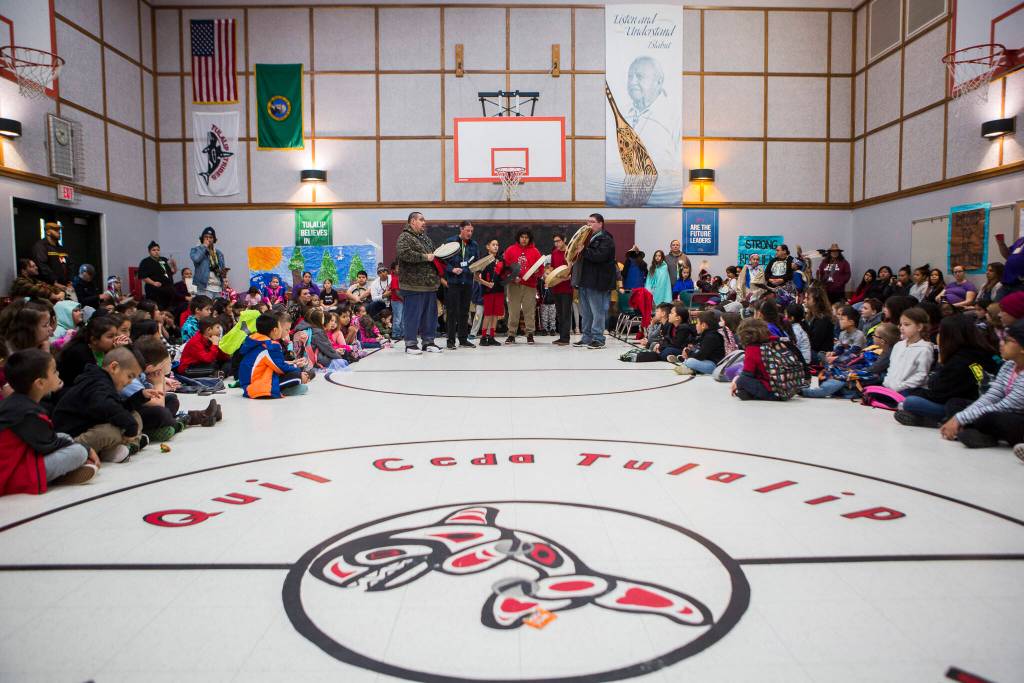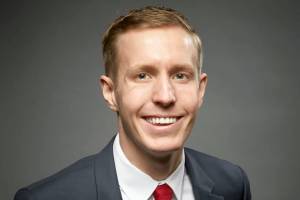After 1,200 positive cases, Tulalip Tribes face ‘deepest fear’
Published 1:30 am Thursday, January 27, 2022






TULALIP — Every January, tribes gather at the longhouse overlooking Tulalip Bay to mark the signing of the 1855 Treaty of Point Elliott.
It’s a time to gather, sing and dance, in traditional ways that were outlawed for decades.
Treaty Days were canceled last year.
And this year.
Since the beginning of the pandemic, over 1,200 cases of COVID-19 have been reported among Native Americans on the reservation, where about 2,700 Tulalip tribal members live, according to the tribes’ emergency management department.
About 13% of Snohomish County residents have had a confirmed case. On the reservation, the best estimate is closer to 40%.
Because of the risk, “we’ve all lost time,” said Tulalip elder Ray Sheldon Jr.
“We used to be big on family doings — not anymore,” Sheldon said. “Cousins and relatives can’t hug anymore because you just don’t know. Personally, we went maybe a year not seeing the grandkids, because we just couldn’t take a chance.”
The pandemic has amplified health inequities. Indigenous people across the United States have been infected by COVID-19 at a rate 3½ times higher than non-Hispanic white people. They’re also over four times more likely to be hospitalized as a result of the virus, and have higher rates of mortality at younger ages, according to the Indian Health Service.
Much of the disproportion can be traced to the lasting effects of colonialism. When Indigenous children were forced to consume settlers’ foods in U.S. Indian boarding schools, dramatic shifts began in the health of Indigenous people, according to a 2015 report.
“We’re always worried about the ones that are more prone to the COVID,” said Les Parks, a Tulalip elder. “Such as the elders and the pre-existing conditions — that’s pretty prevalent out here.”
‘My deepest fear’
Dozens of Tulalip tribal members died during the pandemic. At least nine of those were COVID-related deaths.
Among them were elders — living links to the tribes’ history. Tulalip elders are bearers of Coast Salish language and traditions that were illegal and almost went extinct in the 20th century.
Two sisters, Geraldine Williams and Christine Enick, were among the first to die from the virus. The sudden, surprising loss of two elders reignited concerns about a culture on the brink.
For many, the fear has been ever-present since the first case of coronavirus in the country was recorded in Snohomish County.
“This virus is capable of wiping out any tribe,” said Terry Fast Horse, a Tulalip resident of Lummi and Lakota descent. “And this virus is capable of taking away any growth we’ve had as natives — killing everything we’ve ever wanted. That’s my deepest fear. I look at it from afar like an over-worried parent.”
Several losses stood out to Parks.
Gerald Fryberg, the first Tulalip Tribal member to complete the U.S. Indian Police Academy in New Mexico and the first Tulalip police officer, died in early 2021.
Less than a week later, the tribes lost Katherine Maryanne Monger, known by many as Grandma Katherine.
She was a frybread maestro.
“When it came to Grandma Katherine’s frybread,” Parks said, “it was special because it was hers.”
Family members haven’t been able to hold true memorial services.
“That’s been the hardest one,” said Teri Gobin, chairwoman of the Tulalip Tribes.
When a tribal member dies, the ceremony often lasts days. The traditions vary family to family — Tulalip is a confederation of tribes that each bear unique history — but often begin with sharing food, songs and prayers at the family’s home. Then up to hundreds amass for a memorial service that goes on for hours: storytelling, songs, a meal and sometimes a burning of earthly belongings so the deceased can have them on the other side, Parks said.
“A few hundred of our people will show up and pay our respects,” tribal council member Hazen Shopbell said. “Being here we all grew up together in this community — known one another, grown up with one another.”
Tulalip tribal citizen Kaiser Moses said he hasn’t even begun grieving the loss of his auntie.
“I feel like it’s gonna hit me like a train,” he said, “sooner or later.”
‘More prayer’
Many tribal members have been hesitant to get the vaccine, Gobin said. The Tulalip Tribes offered a $500 incentive to adults who received it, with the aim of building herd immunity.
Shopbell was apprehensive.
“I’ve never been vaccinated in my life,” he said.
Shopbell said his dad, of Santee Sioux heritage, instilled in him a reliance on holistic, natural medicines, because of the history of medical mistreatment of native people.
The mistrust is rooted in recent history.
The U.S. government tested experimental trachoma drugs on boarding school students. And thousands of native women were sterilized without their consent in the 1960s and ’70s.
Shopbell and his family didn’t believe in using anything that isn’t natural. But that changed when he caught COVID in fall 2020.
It took him three weeks to shake his high-grade fever and about a year to fully recover.
“My experience was so intense, was so severe, that my wife and myself got vaccinated,” he said.
Tulalip DJ and artist Monie Ordonia said the science behind the vaccine and natural healing remedies can work together.
She has been immunized against COVID, and since the pandemic began, she has tapped into natural medicines she learned from a program led by a Muckleshoot woman.
A whole fresh lemon, cayenne pepper, oil of oregano, apple cider vinegar — Ordonia lists the ingredients for her “immunity shots.” She shares these shots with her neighbors, and they help keep her pantry stocked with ingredients.
“It’s nice to be able to be another outlet for someone to know that they can find a way to help themselves heal,” she said. “It’s an energy exchange. Because if I don’t have certain things someone will come bring something to me or give me a donation.”
For many, staying closer to home has meant a renewed investment in physical and spiritual wellbeing.
Shopbell said his experience with the virus pushed him back into a deeply spiritual way of life.
“One thing I actually learned from COVID is more prayer,” he said. “I pray every morning for an hour, every night. And if I didn’t have that, I probably wouldn’t have my sanity, to be honest.”
Shopbell smudges his home to purify it with burning sage and does sweat lodges — or Inipi, the Lakota spiritual ceremony — with his family.
It helps keep his kids in touch with who they are and where they come from, he said.
“It’s cool to watch my kids as they’re smudging,” he said.
‘A real tribe’
In some ways, transitioning to a more online world offered a new means of connection.
“Teachers were able to bring up videos of storytellers that are no longer here,” said Maria Rios, who teaches Lushootseed, one of the Coast Salish languages.
Her students got to see videos of leaders like Vi Hilbert, a prominent elder of the Upper Skagit tribe credited with helping to revitalize Lushootseed.
They also heard from Raymond Moses, who dedicated much of his life to passing down the culture, language, and oral storytelling traditions of the Snohomish people.
Lushootseed students in Marysville schools are among those tasked with preserving the language and culture for future generations.
“Through the language, the way of thinking — when you learn a different language, you learn how that culture perceives the world around them,” Rios said.
Parks, a Tulalip elder, just wants to get back to “who we used to be.”
“I love that our community comes together and gathers regularly,” he said, “… going to the beach and celebrating our fishing history, or going over to Camano Island for a community clam dig, or praying to the ancestors who lost their lives over at Camano Head during the the Great Slide of 1825. Those things are who we are as a people: gathering and celebrating who we are.”
Still, more time at home has meant more time to indulge in creative projects with family. Parks and his daughter make drums from scratch.
“Then we laser, for instance, pictures of loved ones who have moved on, onto a drum,” he said. “We found lots of ways to stay busy. My sisters-in-law, they do a lot of beadwork and a lot of making blankets. Everybody’s got their little ways to stay busy.”
New community organizations were born in the pandemic, like Aunties in Action, a group of Tulalip women who distributed fresh produce from a Woodinville farm.
“We’d be parked at the gym and we’d distribute food out to anybody who was in need,” Ordonia said. “You didn’t have to be a tribal member or anything. They’d come drive by, and we put boxes of food in their car and send them on their way.”
Serving others has been a silver lining of the pandemic, Ordonia said.
“I moved here eight years ago to be with my family, and the Tulalip community is phenomenal,” Ordonia said. “Because I live on the reservation, I’m surrounded by literal family. … I’m blessed to have neighbors and family that that just knock on my door and say, ‘Hey, we have this, you want some?’ And to me, that’s community. And to me, that’s what a real tribe is — it’s supporting each other in ways that that we can support each other.”
Isabella Breda: 425-339-3192; isabella.breda@heraldnet.com. Twitter: @BredaIsabella.

